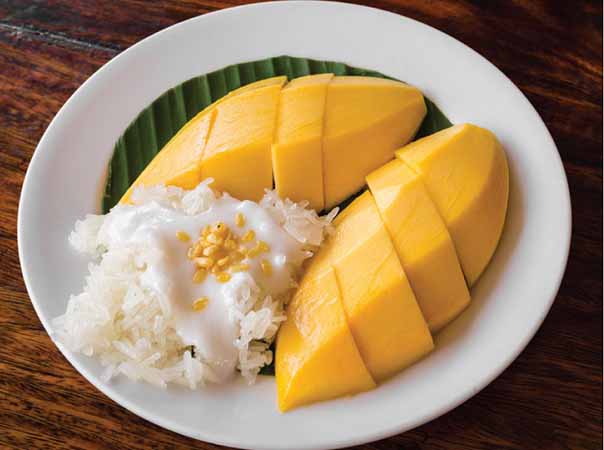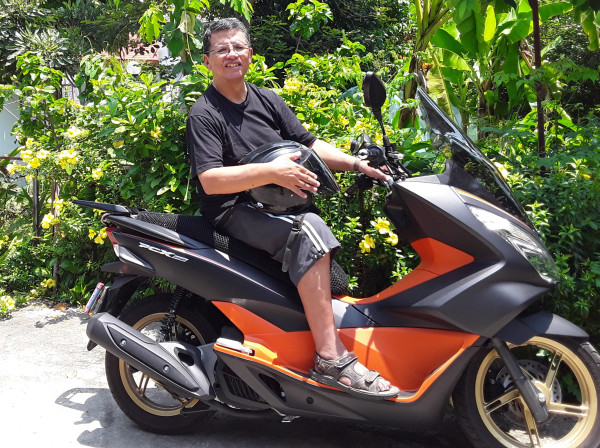Building a House – It Will Cost More Than You Planned For
Originally posted on Sep 1, 2017
I have written before on Expats buying land and building in Thailand. I have suggested that renting might be the preferred way to go for a number of reasons. A lot depends on your relationships to Thais and Thailand, and how much money you can free up; money that you won’t need for day-to-day living and health care.
(Full disclosure: I have bought and built here in Thailand.)
The biggest problem we Expats face of course, is that foreigners are forbidden to own land in Thailand. So any purchase of land would have to be in a Thai’s name (although there are a few loopholes to these laws). When something you think you own is officially in someone else’s name misunderstandings and trouble often follow. The second is that as we get older it is probably a good idea to have a large part of our cash in liquid form instead of in hard to sell real estate. (My rule of thumb is, Do I have enough cash to pay for a heart bypass operation?) In Thailand many find that buying a property is easy, but when you need the cash, selling, not so much.
If you are like I am, you have lived a life where owning property is what you have dreamed of and striven for most of your life. It is very possibly written into our DNA. I heard someone say once again last week when I broached the idea of renting, “I just feel better when I own something.”
Not sure I agree with that thinking but there is probably no changing that guy’s mind. And there are lots who think the same way. So I thought I might share a bit of experience I have in buying, and building here in Thailand. There are lots of books and posts on buying land and building here, and you should Google all you can.
This post instead, will focus on the hidden and unexpected costs we will incur when building that dream house, or even just a place to lay your weary heads. Not sure I have covered everything but it will at least give you an idea.
Caveat: A lot will depend on if you will be building in a gated community or out in the “real world”. Some gated communities advertise that all you will need is a suitcase to be able to move right in to the house you bought. Much of the following extras I cover below will be incurred if, 1. You decide to change a gated community’s house and garden design specifications, or 2. You decide to buy and build out in the “real world”.
(Full disclosure: I have done both.)
Note: A lot of these costs will be incurred building a house anywhere in the world.
*****
Transfer fees and taxes
Fees and taxes aren’t too high here but how much you will owe will depend on the official estimate of the price of the land you bought and/or the price you paid. The fees and taxes can be paid in three ways. 1. The buyer pays the full amount. 2. The seller pays the full amount. 3. The amount is split with the buyer and seller paying an agreed upon part. This will have to be negotiated before money changes hands.
Architect and blue printing costs
You’ll need to get a building permit from the local land office. To obtain this you will need official blueprints from an architect and inspections will have to be made. Architects can charge you in one of two ways. 1. They will charge using an agreed amount, so much per the square footage of the house. 2. They will charge a lump sum. Again, negotiations will determine this.
The land
When preparing the land for the dream house to be built upon there are a number of costs you will incur above and beyond the price of the land. Some of the following will be included in the builder’s estimate, especially in gated communities. Some not.
Land fill
If you buy low lying land, such as rice field land, you may have to raise it up above flood level, or have it reach the level of the road that passes by. This cost will depend on the type of fill you use; top soil, mountain soil (where nothing much grows), clay, sand, etc. You will be charged by the truck load. Also you will need to hire a tractor or backhoe to spread out and even up the land. The cost will depend on the quality of the land fill and how high you will need to go.
Garden and lawn
Once the land is to the level you need you may have to wait a season or two for it to settle. The longer you have the better and more solid your foundation will be. Then you can start your garden. Trees, flowers, hedges, lawn. How much you spend will depend on the cost of your plantings (houses in gated communities will usually include this in the home price although you may want to modify or add to it). The larger the trees the more expensive. One thing to consider, depending on your age and how long you think you have left to enjoy your plantings, is smaller and less expensive trees will take much longer (sometimes many years) to mature and enjoy (especially fruit trees). A large mature tree can cost 100 times what a seedling would cost. You may have to wait to complete your planting until the house is built but trees and large plantings can go in early.
Wall and gate, automatic gate opener
Almost every house in Thailand, as opposed to say an American house, is surrounded by a large wall. Depending on the safety of your neighborhood (in a gated community, outside in a village, in the countryside, in a large city, etc.). The cost of this wall will depend on the building material, its height, and how large a piece of land you will be surrounding. Then you’ll need a gate and if you want, an automatic gate opener. You can get a very plain gate or one of the fancy “estate” type gates. The costs can differ greatly.
Driveway
Your builder may have added the cost of paving your driveway in the initial estimate, or not. Check carefully. The builder may have given you an estimate for a driveway of simple concrete. You may change your mind and want fancy tiles. Everything will depend on your desires. The cost will of course depend on this.
Garden, gate lighting
For safety and aesthetics, garden lighting is something to consider. You can go with fancy lamps or simple. LED lights or solar powered are good ways to go for the long run as they and will decrease the electricity needs, but the initial costs must be added to your estimate.
Patio and patio furniture, barbecue
You may have included a patio in your design. If you haven’t and decide to build one the cost will be affected. Price will depend a lot on its size, the flooring tiles, (Screen enclosed? Roof covered?). Then it will need to be furnished with patio furniture. You can get simple wooden or plastic furniture or real fancy stuff. Outdoor barbecue? Quite cheap in the west, quite expensive here.
Walkway paving
Your garden may require walkways. Paving stones are good for this but can vary greatly in price. You can install them yourself (almost killed myself doing this) or hire workers.
Water connections
Your land may have city water running right up to it or you may have to pay to get it to you. Another way to go is digging a well (cost will depend on various kinds of wells and the depths you’ll need to go). You can also collect rain water. Because city water can sometimes be sporadic you may also need a large water tank and a pump. See what your neighbors are doing.
Electricity connection, poles
Check to see if the power poles pass right by your house. If they don’t you may have to buy and install these poles and pay for connections. Cost will depend on how far you’ll need to get to the nearest power poles.
Garden tools
Depending on how much gardening you intend doing you’ll need the tools. This can become a considerable cost. There will be things like lawnmowers, weed wackers, shovels, hoes, ladders, saws, axes, hammers, wrenches; the list can go on and on.
The house
Your new house will be empty. Some things like closets, cabinets, and the like may have been included in the builder’s estimate. Some will not.
Windows and doors
Drapes, rods, hangers
These are big items in Thailand and are much needed to protect your house from the sun and peering eyes. Drapes can be simple things, even homemade, hung by the home owner, or very expensive and fancy, professionally installed. Count how many windows you have and the quality of the drapes. Costs can vary considerably.
Door knobs and locks
You need to count the number of doors you have. If you choose to go with doors and door fixtures above and beyond those chosen by the builder, the costs can rise big time. You may also want more secure locks than come with the house.
Bars
Almost all houses in Thailand will have bars on their windows. But new houses often don’t have them and it will be your responsibility to buy and install them if you so desire. If you decide on window and door bars, count your windows and doors and hopefully you won’t be too shocked.
Screens
May or may not be included in the initial cost estimates.
Kitchen
Some of the following will be included in the builder’s estimate, some not. And these are often changed later depending on the home owner’s needs and preferences.
Sinks and faucets (can go really fancy here)
Hot water heater (normal or higher powered)
Counter top (granite, tile, marble, etc.)
Kitchen Island (built in vs. free standing, electricity connected)
Dishwasher (lots of new homeowners choose this way to go)
Cabinets (teak, vinyl, wood, metal built in vs. ready-made)
Refrigerator (normal, side by side, separate freezer)
Microwave
Stove (electric vs.gas, with or without oven)
Bathroom
Thai bathrooms are very simple affairs. Expat bathrooms can be rather elaborate and of course more expensive. Make sure your architect and builder know your needs and preferences.
Faucets (simple to solid gold, yours to choose)
Bathtub (Very few in a Thai home, Expats love them, choose built in or stand-alone)
Hot water heater (like the kitchen you can choose depending on the wattage)
Bedroom
Beds, sheets, pillows, covers (quality decides the cost)
Closets (quite often not included in the house design and in the estimates, built in vs. stand-alone)
Dresser (teak – particle board, and all in between, your choice)
Other
Washing machine (size, with/without dryer)
TV., TV service (70” curved 3D or 24” flat screen, and everything in between, TV service has many prices levels and you may need to buy a satellite dish or get cable connected)
Computer, Internet service (Wi-Fi, boosters, speed)
Carpets, floor covering (few Thai house use carpets, wall-to-wall or otherwise, although straw mats are very popular and comfortable – and smell good too. Expats seem to prefer a softer floor covering especially when they are not used to walking barefoot indoors)
Living room furniture (Thai teak, vinyl, Lazy Boy, Louis XVI, lots to choose from)
Dining room furniture (table for 2 – table for 12)
Bookcases
Wall art
Changing your mind (and the house plan)
How big a change and how often plans change will make a big impact on your costs.
“I know the plan calls for the bathroom to be on the right side but let’s put it on the left.”
“I think we could use a sky light right here.”
“The windows are too small. We need to enlarge them.”
“The porch stairs are on the wrong side. We will need to move them.”
“I don’t like these tiles. Tear them out and use the new ones.”
The above are quotes that I have actually heard (and, now I’m not admitting anything, maybe said myself).
Cost of renting a home while you wait for yours to be finished.
While your home is being built (6 months – a year or more) you’ll need to live somewhere. A lot of us forget this part. Say you go towards the middle and pay 10,000 a month for rent. Six months will be 60,000 baht; a year will be 120,000 baht. Pay more for rent? You do the math. This cost will need to be prepared for.
*****
To conclude, when I remodeled my house back in Seattle (three times), after some experience, I found that I needed to take my initial cost estimate and multiply that number by 1.5 if I were to end up having enough to complete the project. So if I estimated that the work and materials would cost $10,000 I would prepare $15,000. It turns out that that worked out just about right to protect myself from the inevitable shock of seeing the final price.
Buying and building here in Thailand has so many variables (workers’ dependability like leaving for 2 weeks during Songkran or simply not showing up for days at a time, builder working on more than one site at a time and needing to pull workers off your project to work on another, undoing mistakes, redoing changes of mind, rainy season delays, unavailability of the materials you need, your neighbors making legal complaints, inflation in the cost of materials, etc., etc.) It makes it harder to come up with a specific number like I could in Seattle.
But here is a suggestion that worked for me, and I advise anyone thinking of buying and building to talk to as many Expats who have done the same and find out their thinking on this. From my experience it has gone something like:
- Land seller gives me the cost of the land.
- Builder give me his estimate on what the house I am planning on will cost.
- Add the two numbers together, or if buying in a gated community, take the quoted home price.
- Multiply this number by 1.5 if you are building in a gated community, at least by 2 otherwise.
- Now, with this number in mind, you’ll have prepared enough and you won’t die from a heart attack when you add up the final totals. And you’ll survive and be able to take that suitcase and move right into your dream home.
Lots, and lots of luck.





